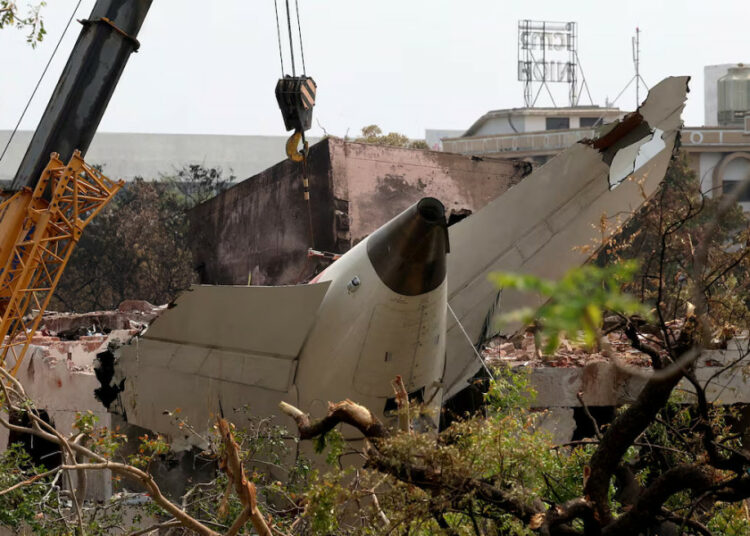India’s aviation authorities have launched an urgent inspection of all Boeing 787 aircraft in the country following Thursday’s devastating Air India crash that claimed at least 270 lives in what is now the world’s deadliest air disaster in over a decade.
Aviation Minister Ram Mohan Naidu confirmed on Saturday that extended surveillance has already begun on the country’s fleet of Boeing 787s, emphasising the need for immediate and thorough checks.
“We have also given the order to do the extended surveillance of the 787 planes. There are 34 in our Indian fleet,” Naidu told reporters at a press briefing in New Delhi. “Eight have already been inspected and with immediate urgency, all of them are going to be done.”
According to Flightradar24 data, Air India operates 33 Boeing 787 Dreamliners, while IndiGo has one in its fleet. Though the planes have not been grounded, a government source told Reuters that grounding them remained under active consideration pending the results of ongoing inspections.
The Directorate General of Civil Aviation (DGCA) on Friday directed Air India to carry out additional maintenance checks on Boeing 787-8 and 787-9 models equipped with GEnx engines. These checks include take-off performance assessments, electronic engine control tests, and engine fuel system evaluations.
Naidu stressed that the government was not ruling out any cause and was investigating multiple possible factors that may have contributed to the crash.
“We will look at all possible theories,” he said, confirming that investigators are examining issues related to engine thrust, the aircraft’s flaps, and the unusual observation that its landing gear remained open during takeoff.
The ill-fated Dreamliner, bound for London Gatwick, went down shortly after takeoff from Sardar Vallabhbhai Patel International Airport in Ahmedabad. The aircraft lost altitude within seconds, crashing into a cluster of buildings, including a hostel at B.J. Medical College, erupting into a fireball and killing hundreds on board and several on the ground.
In the aftermath, families grappled with unbearable loss and growing frustration over delays in identifying and retrieving the bodies of their loved ones.
Rafiq Abdul Hafiz Memon, who lost four family members, pleaded for answers, “We have lost our children … we are not understanding anything. Please help us get information about our children. Tell us when they are going to release their bodies,” he said, visibly distressed.
Another grieving parent, the father of Harshad Patel, expressed his anguish over bureaucratic delays. “The authorities are trying to help but our patience is running out,” he said, adding that he had been informed it would take 72 hours for DNA profiling to confirm the identity of his son.
The scale of the disaster made identification efforts harrowing. Most victims were severely charred, prompting doctors to rely on dental records for verification.
Dr. Jaishankar Pillai, a forensic dentist, explained the painstaking process, “We have the dental records of 135 charred victims, which can then be matched through reference to victims’ prior dental charts, radiographs or other records.”
At B.J. Medical College, where many of the crash victims had ties, the mood remained grim. One doctor, requesting anonymity, said, “Most of us are struggling with our emotions and are mentally disturbed because of the loss of friends and colleagues. The loss of so many colleagues and friends in this incident is difficult.”





